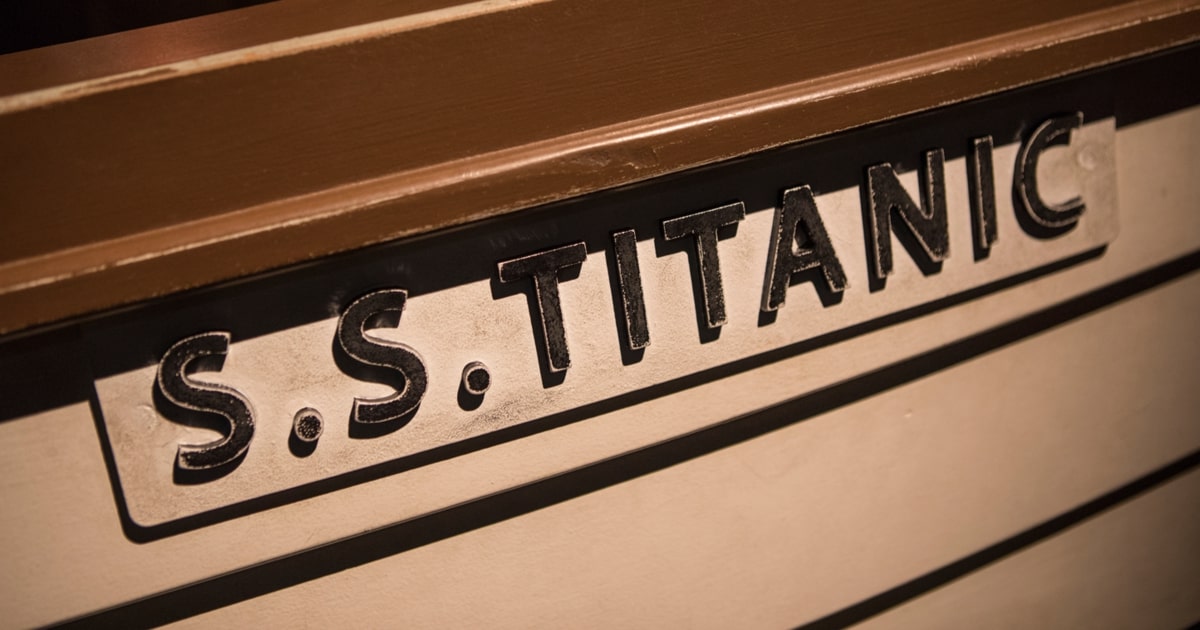The Muslim World and the Titanic
Does Islam share the same fate as the Titanic?
September 16, 2010

Comparing the Muslim world of today with the Titanic just before its sinking, some powerful parallels come to mind — sadly so.
That ship was all alone in the ocean, was considered invincible by its proud makers and yet suddenly became irredeemably tarnished in its oversized ambitions. Within a few seconds, it moved in its self-perception from world dominator to sailing helplessly in the icy ocean of modernity, without any concept of where a rescue crew could come from.
The passengers in the third-class cabins remained asleep, effectively imprisoned, clueless about the looming catastrophe. The rich, meanwhile, managed to rescue themselves in the few lifeboats that were available, while the traveling clergy excelled with heartfelt but empty appeals to those caught in between not to give up fighting.
The so-called Islamic reformers remind me of the salon orchestra, which — in a heroic display of giving the passengers the illusion of normalcy — continued to play on the deck of the Titanic until it went down. Likewise, the reformers are playing an alluring melody, but know full well that no one is listening anyway.
All around the world, we live in times of significant global transformation. The disorienting pressures stemming from that need find a real-life expression in such events as the fight in New York City over the location of a mosque, the abandoned burning of Korans in Florida, or German debates about the presumed economic inferiority of Muslim immigrants (advanced by a central banker, who has since resigned from office).
When it comes to the future of Islam, I fear that the road to transformation and modernization will only be reached following a period of collapse.
This is especially true in the Arab world, where the prospects for both regional and global advancement appear rather daunting, if not — for now — illusory.
A rapidly growing, poor and oppressed population, a lagging educational sector, shrinking oil reserves and drastic climate change undermine any prospects for economic progress. In addition, these factors further intensify the existing regional and religious conflicts.
The net effect of this could well be an increasing loss of relevance and authority of the state itself, which could lead to a significant spread of violence.
The civil wars in Afghanistan, Iraq, Algeria, Pakistan, Somalia and Sudan are just the beginning of it — although already a most ominous one.
The present form of spiritual and material calcification leads me to make a prediction: Many Islamic countries will tumble, and Islam will have a hard time surviving as a political and social idea, and as a culture.
What this does to the world community is difficult to assess. However, it is quite clear that this disintegration will result in one of the largest migrations in history. (And this is precisely where the circle of fear is getting closed again — from New York to Germany.)
The downfall of the Islamic world would automatically mean that the waves of migration to Europe would increase significantly. For young Muslim immigrants, fleeing poverty and terrorism, Europe does indeed represent a hope for them, as does the United States.
Still, they will not manage to shed themselves of their friend-foe thinking. They will migrate into a continent that they by and large despise — and that they hold responsible for their plight.
Worse, neither the recipient country’s government institutions nor the long-established Muslim immigrants there can help them to integrate themselves.
The spreading violence that came to the fore in the wake of the downfall of their home countries will simply be outsourced, mainly to Europe, because of its non-shielded immigrant situation.
Saying so has nothing to do with scaremongering, but is an act of recognizing what’s real. In the ultimate analysis, it is the natural result of the imbalance in the world in which we live.
The many sins of the West and the corresponding failures of the Islamic world itself, which are already the stuff of history for centuries, will become very visible again.
This is the downside of the globalization process. Hard times await us on both sides of the Mediterranean Sea. Meanwhile, we are all running out of time.
Editor’s Note: This is Part II of a two-part essay by Hamed Abdel-Samad. Read Part I here.
Takeaways
The road to transformation and modernization of Islam will only be reached following a period of collapse.
The so-called Islamic reformers remind me of the Titanic's salon orchestra, which continued to play on the deck of the ship until it went down.
The downfall of the Islamic world would automatically mean that the waves of migration to Europe would increase significantly.
